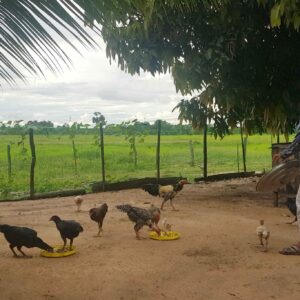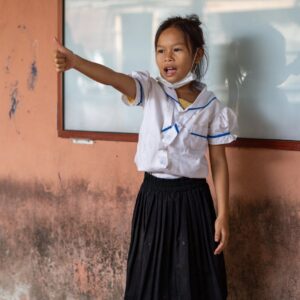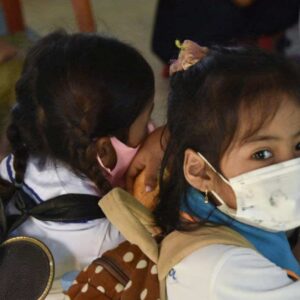As livelihoods in Southeast Asia continue to be lost to the current global pandemic, the most vulnerable populations will be hit the hardest, especially children.
The Asian Development Bank (ADB) estimates that the COVID crisis will threaten the employment of 68 million workers across Asia if it endures until September. This, coupled with the extensive closure of schools that we are witnessing at the moment, has no historical precedent. Its impact is yet to be seen but, as global poverty surges, so too will the prevalence of child labour.
Poverty rates rising
This crisis threatens to undo the decades of progress in the fight against poverty and inequality. The UN ascertains that the “the harmful effects of this pandemic will not be distributed equally … they are expected to be most damaging for children in the poorest countries, and in the poorest neighbourhoods, and for those in already disadvantaged or vulnerable situations.”
In Vietnam, the impacts of COVID could double the poverty rates, taking it from 18 per cent to 31 per cent among households linked to manufacturing reliant on imported inputs (UNICEF).
The economy’s reliance on tourism, agriculture and the informal sector position it as one the most vulnerable economies to global crises. Cambodia’s economy faces a similar plight as garment factories have suspended producing and exporting and tourism declines. Cambodia’s loss in revenue generated from its tourism sector alone is estimated to be at around US$3 billion this year.
Child labour concerns
The knock-on effect means that child labour could become an important coping mechanism for households falling into poverty due to COVID-related shocks. In Phnom Penh, Cambodia, mother-of-three Oun Kim Ly tells us that she is finding it difficult to meet her children’s needs. “I used to be able to earn US$2.50 per day scavenging plastic on the streets, but now the market is gone and I can’t get the same price”, she explains.
From 6pm to 12am each day, Ly brings her kids with her as she scavenges, hoping that not only are her children safer with her than home alone but that together, they might be able to sell enough plastic to cover their daily needs.
Ly’s neighbour, Hoat Chana is also struggling and has been a beneficiary of our emergency food distribution project for the past three months. Chana has six children to feed aged six months to 12 years old. Chana’s husband is a tuk-tuk driver but since tourism declined he hasn’t been able to work. “We can’t support all our children”, says Channa. “Some of our children are out selling food with their relatives so we have enough money” she adds.
A child’s right to education
The longer schools remain shut, the longer children will remain at risk to falling into child labour and unlikely to catch up on learning. In Cambodia, we anticipate a need for scaling up our existing accelerated learning programmes and remedial classes to ensure the children most likely to drop out or not return to those schools at all receive the support they need.
School closures, along with increased poverty rates also increase childrens’ vulnerability to human trafficking and early marriage for girls in rural areas of Vietnam. As economies decline and job losses ensue, there is a risk that traffickers may take advantage of the situation and offer false job opportunities to the most vulnerable. We believe that education is the best tool to raise awareness on the risks and consequences of human trafficking and have resumed our activities in Vietnam, addressing this issue.
We have also resumed our existing projects which focus on building better livelihood opportunities for ethnic minority populations in Laos and Vietnam – where schools have now reopened. We believe that a focus on vocational skills, careers counseling, and livelihoods will be key to building more equal and inclusive societies post-pandemic and to helping vulnerable populations build better resilience to shocks.






